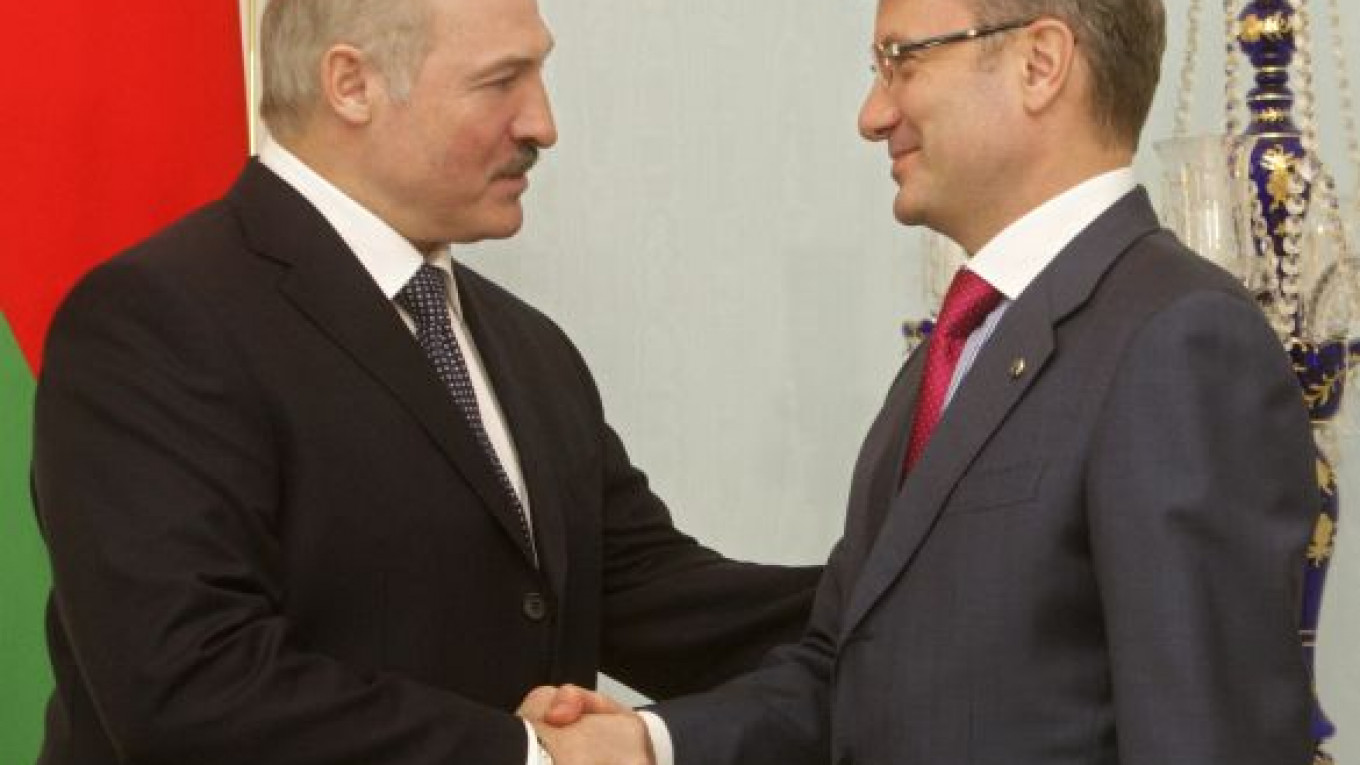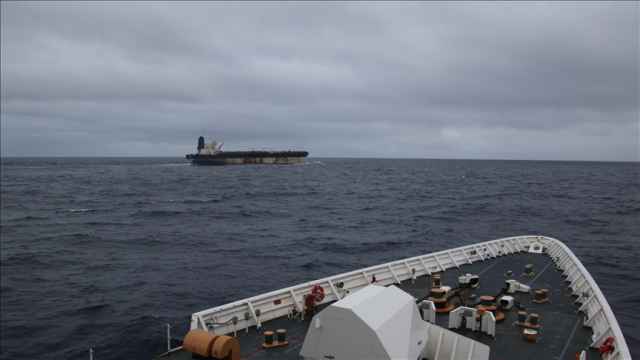Belarus is growing increasingly dependent on Russia to shore up its economy as the current-account deficit soars and a possible devaluation looms, an opposition candidate in last year's presidential election said.
"Debts are piling up quickly; they're just not sustainable," Yaroslav Romanchuk said in an interview in Warsaw on Wednesday. "And at the moment, Russia is the only country that is bailing Belarus out."
Standard & Poor's last week cut Belarus' debt rating by one notch to B, five steps below investment grade. The downgrade reflected the country's "heightened vulnerability to negative external financing trends" due to the "deterioration in usable reserves," S&P said in a March 15 statement.
The same day, Russian Finance Minister Alexei Kudrin said Belarus had turned to Russia and other partners from the former Soviet Union to ask for loans totaling $3 billion.
A country of 10 million wedged between European Union member Poland to the west and Russia to the east, Belarus was dubbed the "last dictatorship in Europe" by the administration of former U.S. President George W. Bush. President Alexander Lukashenko, who has ruled Belarus since 1994, was returned to office for a fourth term last year with almost 80 percent of the vote in elections the Organization for Security and Cooperation in Europe said were not free or fair.
Devaluation Looming
Belarus' current-account deficit was 15.6 percent of gross domestic product last year, according to data compiled by Bloomberg. By comparison, Greece's current-account deficit reached 15.3 percent of GDP in the third quarter of 2008 and began 2010 at 12.2 percent before the country had to turn to the European Union and International Monetary Fund for a bailout.
Belarus is likely to devalue its ruble as it runs out of foreign reserves because of an "intolerable" current-account deficit, Danske Bank A/S said March 21. "The situation seems to be escalating rapidly," Sanna Kurronen, a Helsinki-based analyst at the bank, wrote in a research note.
"Immediate solutions are needed," Dmitry Gourov, an emerging-market strategist at UniCredit in Vienna, wrote in an e-mailed note Thursday. "Devaluation is still likely in the coming weeks."
There is an "urgent need for adjustment" of the country's fiscal and monetary policies, the International Monetary Fund said in a report on Belarus dated March 9, and its currency should be allowed to depreciate. Belarus' ruble has weakened 0.4 percent against the dollar over the past two days, poised for the biggest two-day decline since Oct. 27. Its 2015 and 2018 dollar bonds tumbled Wednesday, pushing yields to record highs.
Belarus' 20 percent devaluation against the dollar in January 2009 wasn't enough, Gourov wrote in the note. The ruble may need to slide a further 20 percent to bring it in line with the drops seen by the Russian and Ukrainian currencies against the dollar during the 2008 crisis.
"Only privatization to Russia and loans from Moscow can support the country," Gourov wrote. "This takes time."
But according to Daniel Krutzinna, a Minsk-based consultant at Uniter Investment, Belarus may be able to avoid devaluing its ruble, which is currently pegged to a currency basket divided equally into dollars, euros and Russian rubles.
"Devaluation would be politically pretty dire," he said by phone Wednesday. "And a devaluation isn't inevitable — but Belarus has to do something to combat its trade deficit."
Reserves Down
Belarus' foreign reserves dwindled to $3.4 billion in December, down 36 percent from a high of $5.3 billion in April 2010, IMF data compiled by Bloomberg show. According to Krutzinna, reserves have declined by about a third since November.
"The development of Belarus' reserves since November has definitely been unhealthy," he said. "There's been no catastrophe so far, but the reserves are topic No. 1 at the moment."
While Lukashenko relaxed his hold on the country before the Dec. 19 election, his regime cracked down on demonstrators after the vote, arresting more than 700 people, including opposition candidates.
"Dialogue is important, but it isn't possible with Lukashenko right now," Alexander Milinkevich, an opposition leader and a defeated candidate in the 2006 presidential vote, said in an interview Wednesday in Warsaw. "There can be no discussions until all the political prisoners have been freed."
Alternatives to Lukashenko
Russia's leaders are searching for an alternative to Lukashenko, and after efforts by the EU to forge closer relations with Belarus stalled following the post-election crackdown, there is nobody to stop Russia gaining more control over events in its western neighbor, Romanchuk said.
The EU said March 21 that it was adding 19 Belarussian officials to a list of those banned from traveling to the bloc and whose assets have been frozen.
"Russia's becoming more serious about trying to find a substitute for Lukashenko," Romanchuk said. "It isn't out of love for its Belarussian brothers, though. Nobody can tell me Russia has stopped being an empire. They would really like to swallow us."
A Message from The Moscow Times:
Dear readers,
We are facing unprecedented challenges. Russia's Prosecutor General's Office has designated The Moscow Times as an "undesirable" organization, criminalizing our work and putting our staff at risk of prosecution. This follows our earlier unjust labeling as a "foreign agent."
These actions are direct attempts to silence independent journalism in Russia. The authorities claim our work "discredits the decisions of the Russian leadership." We see things differently: we strive to provide accurate, unbiased reporting on Russia.
We, the journalists of The Moscow Times, refuse to be silenced. But to continue our work, we need your help.
Your support, no matter how small, makes a world of difference. If you can, please support us monthly starting from just $2. It's quick to set up, and every contribution makes a significant impact.
By supporting The Moscow Times, you're defending open, independent journalism in the face of repression. Thank you for standing with us.
Remind me later.






